This article was medically reviewed by Sarah Gehrke, RN, MS and by wikiHow staff writer, Megaera Lorenz, PhD. Sarah Gehrke is a Registered Nurse and Licensed Massage Therapist in Texas. Sarah has over 10 years of experience teaching and practicing phlebotomy and intravenous (IV) therapy using physical, psychological, and emotional support. She received her Massage Therapist License from the Amarillo Massage Therapy Institute in 2008 and a M.S. in Nursing from the University of Phoenix in 2013.
There are 11 references cited in this article, which can be found at the bottom of the page.
wikiHow marks an article as reader-approved once it receives enough positive feedback. This article has 26 testimonials from our readers, earning it our reader-approved status.
This article has been viewed 2,443,983 times.
Earaches can range from mildly annoying to incredibly painful. Luckily, most of them aren’t caused by anything serious, and you can usually treat them at home. In this article, we’ll talk you through the best ways to get relief—and help you decide whether it’s time to get help from your doctor.
Steps
Expert Q&A
Did you know you can get premium answers for this article?
Unlock premium answers by supporting wikiHow
-
QuestionPus is oozing out from ear lobe. What should I do?
 Sarah Gehrke, RN, MSSarah Gehrke is a Registered Nurse and Licensed Massage Therapist in Texas. Sarah has over 10 years of experience teaching and practicing phlebotomy and intravenous (IV) therapy using physical, psychological, and emotional support. She received her Massage Therapist License from the Amarillo Massage Therapy Institute in 2008 and a M.S. in Nursing from the University of Phoenix in 2013.
Sarah Gehrke, RN, MSSarah Gehrke is a Registered Nurse and Licensed Massage Therapist in Texas. Sarah has over 10 years of experience teaching and practicing phlebotomy and intravenous (IV) therapy using physical, psychological, and emotional support. She received her Massage Therapist License from the Amarillo Massage Therapy Institute in 2008 and a M.S. in Nursing from the University of Phoenix in 2013.
Registered Nurse
-
QuestionMy brother sleeps with a fan on and the cold goes right to my left ear. Could that be the cause of my earaches every morning?
 Sarah Gehrke, RN, MSSarah Gehrke is a Registered Nurse and Licensed Massage Therapist in Texas. Sarah has over 10 years of experience teaching and practicing phlebotomy and intravenous (IV) therapy using physical, psychological, and emotional support. She received her Massage Therapist License from the Amarillo Massage Therapy Institute in 2008 and a M.S. in Nursing from the University of Phoenix in 2013.
Sarah Gehrke, RN, MSSarah Gehrke is a Registered Nurse and Licensed Massage Therapist in Texas. Sarah has over 10 years of experience teaching and practicing phlebotomy and intravenous (IV) therapy using physical, psychological, and emotional support. She received her Massage Therapist License from the Amarillo Massage Therapy Institute in 2008 and a M.S. in Nursing from the University of Phoenix in 2013.
Registered Nurse If your earache is in the left ear, the fan possibly could be the cause. Wind can be irritating to the ear canal and if it is persistent, you may have inflammation. If you have tried moving the fan or covering the ear without the pain subsiding, then you should see your doctor to determine what is causing the pain. Some people grind their teeth at night, causing an earache.
If your earache is in the left ear, the fan possibly could be the cause. Wind can be irritating to the ear canal and if it is persistent, you may have inflammation. If you have tried moving the fan or covering the ear without the pain subsiding, then you should see your doctor to determine what is causing the pain. Some people grind their teeth at night, causing an earache. -
QuestionCan a fever cause ear pain?
 Mitzi Scotten, MDDr. Scotten is a board certified Pediatrician in Arizona. She received her MD from the University of Kansas in 1993 and completed her Pediatric residency at Kosair Children’s Hospital. Dr. Scotten was the director of the Pediatric Cystic Fibrosis clinic at the University of Kansas, was voted as a Kansas City Star “Top Doc” for 5 years, and has been selected to the National Board of Medical Examiners.
Mitzi Scotten, MDDr. Scotten is a board certified Pediatrician in Arizona. She received her MD from the University of Kansas in 1993 and completed her Pediatric residency at Kosair Children’s Hospital. Dr. Scotten was the director of the Pediatric Cystic Fibrosis clinic at the University of Kansas, was voted as a Kansas City Star “Top Doc” for 5 years, and has been selected to the National Board of Medical Examiners.
Board Certified Pediatrician
Warnings
- Do not use eardrops if you have damaged eardrums, ear tubes, an outer ear infection, or ear drainage (such as pus or liquid).[23]⧼thumbs_response⧽
- Never attempt to clear your ears with ear candling, a practice that involves placing a lit candle in the ear canal in an effort to “draw out” wax and impurities. Ear candling is very unsafe and will not help your ear feel better.⧼thumbs_response⧽
References
- ↑ https://health.clevelandclinic.org/3-home-remedies-for-an-ear-infection/
- ↑ https://www.uofmhealth.org/health-library/te6203
- ↑ https://health.clevelandclinic.org/3-home-remedies-for-an-ear-infection/
- ↑ https://myhealth.alberta.ca/Health/aftercareinformation/pages/conditions.aspx?hwid=uh2961
- ↑ https://www.seattlechildrens.org/conditions/a-z/earache/
- ↑ https://health.clevelandclinic.org/3-home-remedies-for-an-ear-infection/
- ↑ https://www.mayoclinic.org/diseases-conditions/ear-infections/diagnosis-treatment/drc-20351622
- ↑ https://health.clevelandclinic.org/3-home-remedies-for-an-ear-infection/
- ↑ https://www.scripps.org/news_items/6148-what-is-the-best-treatment-for-an-ear-infection-for-children
- ↑ https://myhealth.alberta.ca/Health/aftercareinformation/pages/conditions.aspx?hwid=uh2961
- ↑ https://health.clevelandclinic.org/3-home-remedies-for-an-ear-infection/
- ↑ https://www.nhsinform.scot/illnesses-and-conditions/ears-nose-and-throat/earache
- ↑ https://www.nhsinform.scot/illnesses-and-conditions/ears-nose-and-throat/earache
- ↑ https://www.seattlechildrens.org/conditions/a-z/earache/
- ↑ https://health.clevelandclinic.org/3-home-remedies-for-an-ear-infection/
- ↑ https://health.clevelandclinic.org/3-home-remedies-for-an-ear-infection/
- ↑ https://kidshealth.org/en/parents/earaches-sheet.html
- ↑ https://www.nhs.uk/conditions/earache/
- ↑ https://www.seattlechildrens.org/conditions/a-z/earache/
- ↑ https://www.health.ny.gov/diseases/communicable/pneumococcal/fact_sheet.htm
- ↑ https://myhealth.alberta.ca/Health/aftercareinformation/pages/conditions.aspx?hwid=uh2961
- ↑ https://kidshealth.org/en/parents/earaches-sheet.html
- ↑ https://www.cdc.gov/healthywater/hygiene/disease/swimmers_ear.html/
About This Article
To get rid of an ear ache, hold a heating pad or warm washcloth against your ear, which will help soothe the pain. You can also apply a few drops of warm olive oil or baby oil to your ear to alleviate your ear ache. If you feel like your ear ache is being caused by pressure in your ear, try chewing some gum or yawning, which will make your ears pop. If natural remedies aren't helping, take an over-the-counter painkiller like ibuprofen or acetaminophen. To learn more from our Register Nurse co-author, like when to check if you need antibiotics, keep reading the article!
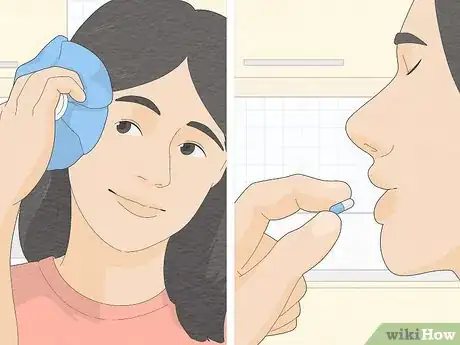
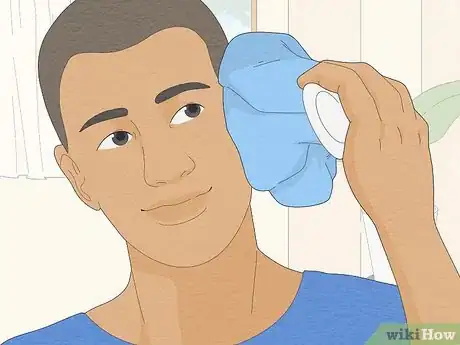
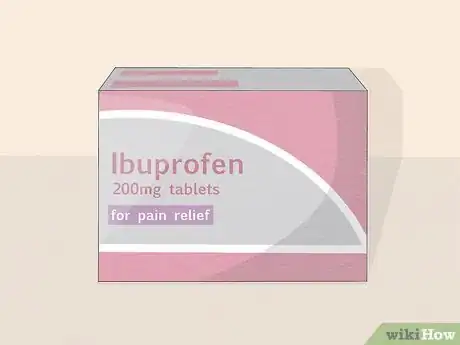
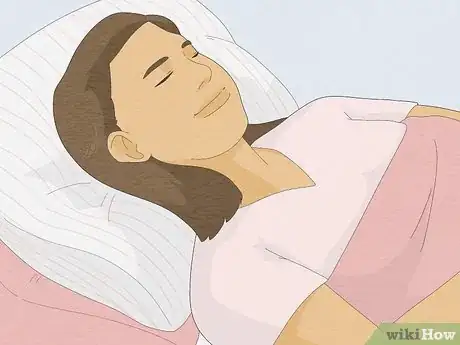
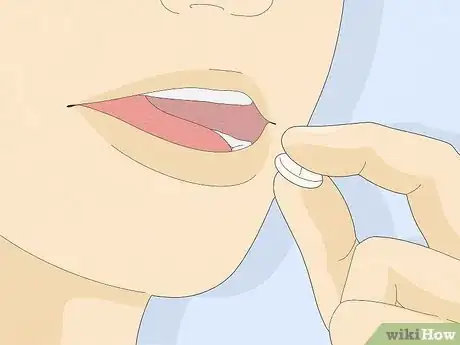
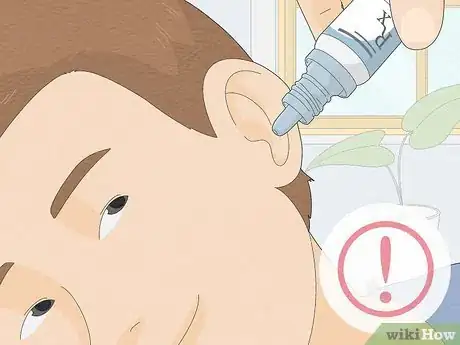
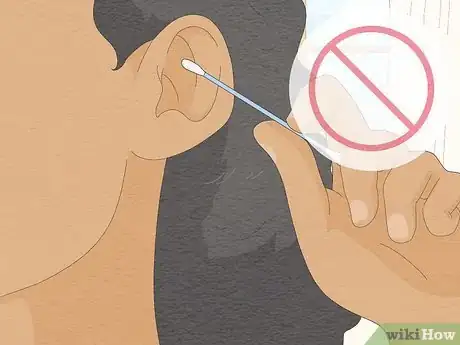
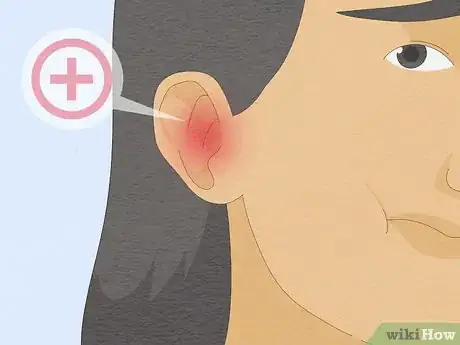
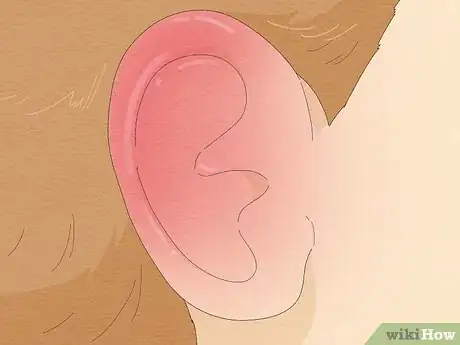
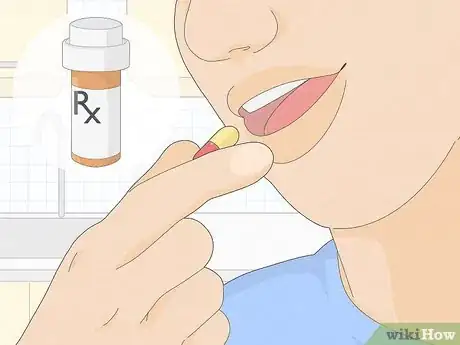
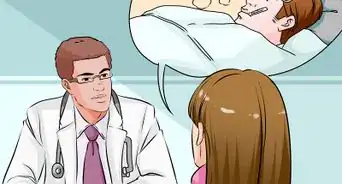
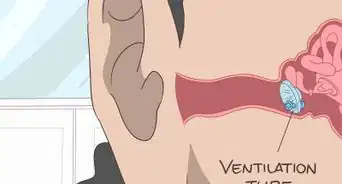
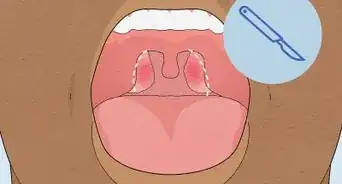
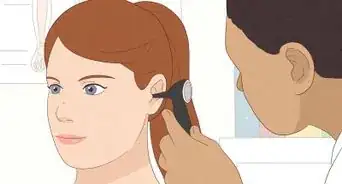


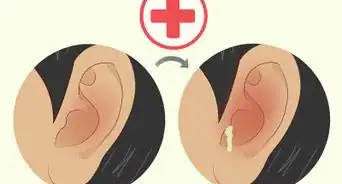
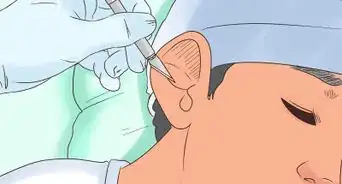
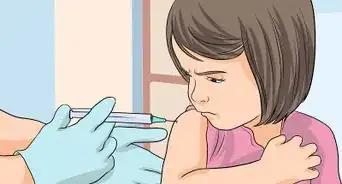
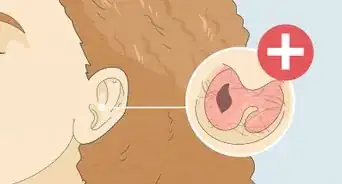
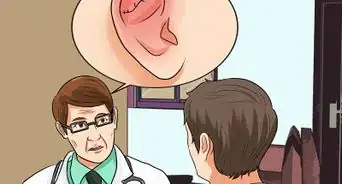
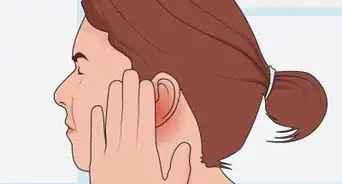












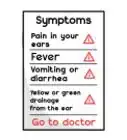

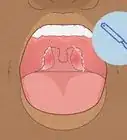



































Medical Disclaimer
The content of this article is not intended to be a substitute for professional medical advice, examination, diagnosis, or treatment. You should always contact your doctor or other qualified healthcare professional before starting, changing, or stopping any kind of health treatment.
Read More...